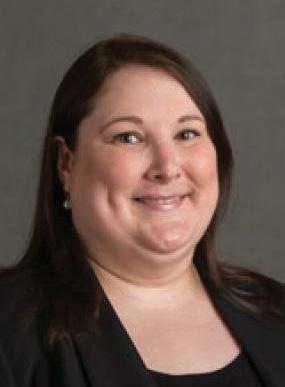
2 minute read
DEMONSTRATION PROJECT
Focused On Southeast Kansas Will Serve As A Model

Advertisement
The day Kaela Byers, Ph.D., MSW, received the news that she and her team won a $3,747,804 million grant to strengthen and support families and prevent child maltreatment in Kansas, there was only one thing to do: “We were dancing in the halls!” says Byers, associate research professor in the University of Kansas School of Social Welfare.
As the principal investigator for the initiative, she will guide the five-year Universal Prevention for Strong and Thriving Families project (Family Strong), which will demonstrate a model of a community support system that addresses and alleviates the stressors families experience, preventing them from turning into the kind of crises that can result in them being involved with the child welfare system. The grant from the U.S. Department of Health and Human Services’ Administration of Children and Families was awarded Oct. 1, 2021.
The Family Strong demonstration project will focus on eight counties in southeast Kansas, a region where the out-of-home foster care placements for children is nearly double that in the rest of the state. Byers says the region also has many strengths the project will build upon, including an existing network of programs and partnerships that can provide the added support families need to stabilize and thrive.
“Kansas is my home, and all of it is near and dear to my heart. I want to always be working in the places I can do the most good and have the most impact,” Byers shares. “It’s a great feeling to know we will bring some much-needed services and resources to help strengthen this community.”
Family Strong will leverage these existing connections to strengthen and grow an interconnected network of providers, launch new services that will increase access, and conduct grassroots outreach and marketing aimed at promoting and normalizing helpseeking in order to increase network activity to support children and families.
“I want to see families be able to get the things they need, with less contact with the formal child welfare system and much more reliance on resources in their community,” says Byers.
The project combines the strengths of a powerful partnership of organizations, including the University of Kansas Center for Public Partnerships and Research, the Kansas Department for Children and Families, and three community-based agencies in southeast Kansas: Kansas Legal Services, Kansas Children’s Service League, and the Family Resource Center. The project team will also include a steering committee made up of community members, including those who have successfully accessed resources to address family crises.
The goal is to provide families in the region with a continuum of comprehensive prevention services so they have seamless, universal access to supports. For example, Family Strong will expand and introduce new services at the Family Resource Center, including preventative legal services. It will boost the Integrated Referral and Intake System (IRIS), which connects familyserving agencies to streamline referral and service coordination for families. And, it will promote the use of the 1-800-CHILDREN warm line, connecting families to support services.
The initiative will conclude with an evaluation led by Jared Barton, PhD, MSW, assistant research professor, to determine its effectiveness and expand the knowledge base about proactive approaches as the norm in family services.
“This is an opportunity to demonstrate how we can do things differently, how we can break away from the system we have that feels punitive, to one that meets stress with resources and support,” Byers says. “I’m excited for the opportunity to highlight what we can do here in Kansas.”







